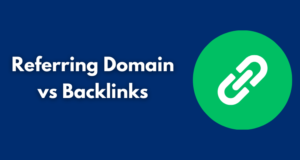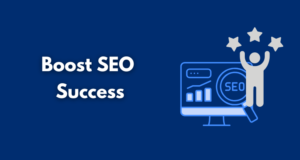Customers want hassle-free shopping experiences with quick deliveries and excellent customer service. As people are shifting towards online shopping, e-commerce businesses face both challenges and opportunities. They are using everything in their arsenal to meet customer demands, scale their operations, and excel in a competitive industry.
For successful growth, e-commerce businesses should have the technology, human resources, and expertise to handle the increase in orders, customer interactions, and other challenges. Businesses should have strategies to increase revenue without compromising customer experience. This blog highlights strategies involving AI, marketing, and partnerships for the scalable growth of your business.
Table of Contents
ToggleOptimize Your Website

Your website is your direct connection with regular and future customers. An optimized website attracts visitors, provides a smooth experience, and retains more customers. Customers prefer websites that are user-friendly and relevant. They should be able to complete browsing and checkout with swift, simple steps. A seamless order placement reduces bounce rates and cart abandonments.
People tend to abandon pages that take longer to display. A website that loads quickly retains visitors, improves SEO ranking, and increases traffic and sales.
You should use cloud-based solutions and scalable e-commerce platforms like Shopify, BigCommerce, and Magento to handle product listings, traffic, and order volume without crashing.
For businesses operating in the B2B space with complex requirements, working with an experienced b2b magento developer ensures proper implementation of custom features like bulk ordering, tiered pricing, and customer-specific catalogs.
You should regularly check and update features on your website that affect user experience and increase conversions.
Gather and Analyze Data
Data is a key resource that determines the growth and success of a business. You should regularly gather data and analyze it to understand your website traffic, the preferences of your customers, and the products that earn the highest revenue.
Your business decisions should be based on sales trends, purchasing behavior, and conversion patterns supported by data.
You should use Google Analytics, CRM systems, and heatmaps for reliable data on customer interactions, website traffic, purchasing behavior, and other vital metrics. You can improve your website’s performance, personalize services, and customize marketing campaigns based on these insights.
Customized product offerings attract more visitors and potential customers.
Automate Operations

Automation increases efficiency by reducing manual work and errors. Businesses should automate operations like inventory, customer service, and order processing. You can track your inventory and avoid overstocking and stockout issues by using automation tools.
They manage optimal stock levels according to changing customer demands and market trends. You should also consider outsourcing your logistics. Automation tools and 3PL services effectively handle warehousing, packaging, and shipping processes. This allows you to scale your business without investing in infrastructure and human resources.
As a next step, many fast-growing ecommerce brands opt for end-to-end outsourcing, including packaging, by leveraging Zenpack’s full-service custom packaging. This approach ensures that your products are not only warehoused and shipped, but also delivered in professionally designed, brand-aligned packaging that enhances customer experience, consistency, and perceived value.
Personalized and excellent customer service is crucial to retain customers. You should use chatbots and automated responses to address customer queries and concerns. Timely updates regarding orders and inquiries help maintain customer satisfaction without draining employees.
Marketing Strategies
Growing your business means reaching out to untapped customers and markets. You should invest in paid advertising to reach a broader audience on the Internet. These ads target specific customers based on browsing and purchasing behavior and divert them to your website for potential conversion into future buyers.
Another marketing tool to improve your brand image and reach is SEO. Well-planned and executed SEO strategies improve search engine rankings, attract organic traffic, and increase revenue. You should focus on quality content and user-friendly features to improve customer experience and brand credibility. Collaborating with an ecommerce marketing consulting partner can help tailor these strategies to your specific audience and market goals
SEO strategies ensure the long-term growth of your business with lower investment than other marketing strategies.
Diversify Sales
In today’s digital world, limiting sales to one channel is not a wise business decision. Businesses can reach a wider audience through physical stores, websites, and social media. Such diversification helps generate higher revenue by targeting potential customers.
Investing in robust e-commerce platforms like Amazon, Etsy, and eBay exposes your business to a broader customer segment and boosts your brand visibility. These platforms provide flexibility and support for your growing business. More customers trust these platforms, and your business can benefit from their brand credibility.
Social platforms like Facebook, Instagram, and TikTok connect you with target social media audiences. You can directly sell or integrate shoppable posts to divert more traffic to your app/website. You should reach potential customers through all possible channels, like physical stores, social media, and online marketplaces. Or even consider starting your own e-commerce marketplace and facilitating transactions between multiple sellers and customers.
You should consider outsourced sales for your business to ensure scalability and efficiency to meet customer demands.
Partner with Stakeholders
You should build long-term partnerships with suppliers, marketers, and industry experts. Partnering with your vendors ensures a regular supply of high-quality products, resulting in consistent availability of products and timely deliveries.
It helps maintain customer satisfaction even during seasonal fluctuations, changes in demand, and other issues in the market.
Collaborating with influencers and affiliates boosts your reach to a more established customer base and provides a credible source for brand promotion. Exploring different business models and outsourcing helps you scale your business without the additional cost of inventory, sales, and other business functions.
Maintaining a good relationship with these partners will help you streamline the supply chain and fulfill orders efficiently.
Customer Retention
Loyal customers ensure steady revenue and provide a secure foundation for the growth of a business. Customer retention is also more reliable and cost-effective than converting leads into buyers.
You should reward loyal customers with offers, discounts, and other benefits to encourage future purchases. Such benefits increase brand loyalty and the lifetime value of customers.
Subscription-based services foster long-term relationships by providing ongoing value for customers while providing you with steady revenue. You should collect customer feedback and reviews and improve your services to make them feel valued and earn their loyalty.
Team and Operations Management
An efficient team is a key requisite for scaling your business. While you can train and prepare your existing team for the challenges of a growing business, you should also strategically hire qualified people in key roles in marketing, customer service, and fulfillment departments.
However, many businesses find it more efficient to leverage working with a 3PL and order fulfillment provider for E-commerce brands because optimizing an in-house logistics department can be both complex and costly.
Partnering with a 3PL provider allows businesses to tap into specialized expertise and scalable solutions, relieving the burden of managing warehousing, inventory, and shipping operations in-house.
You should streamline internal processes with automation tools like customer relationship management, inventory management, and order fulfillment. Such tools create an organized workflow, reduce pressure on internal staff, and allow for smooth scaling.
Strategic functions should be your priority while scaling your business. Delegating tasks and outsourcing daily functions like sales, logistics, and customer service to third parties helps avoid operational bottlenecks.
Monitor and Adapt to New Trends
E-commerce is a growing industry with new trends and technological advancements. You should keep up with all industry trends to improve customer experience and stay ahead of the competition.
You should regularly study market trends and analyze competitor performance. Understanding consumer preferences and industry best practices can help you bridge the gap with top competitors and scale your business.
There are constant changes in technological advancements, market trends, and customer preferences. Have contingency plans ready to adapt to all these changes and allow your business to thrive even in the most challenging situations.
Scale Your E-commerce Business
Sustainable and scalable growth requires careful planning, effective strategies, and regularly adapting to changes in the industry. Smart strategies like automating key processes, data-based decision-making, diversifying sales channels, and building strong partnerships allow businesses to grow while maintaining quality and efficiency.
Scalable marketing campaigns, customer retention, and adapting to new trends and challenges ensure a competitive advantage and sustainable growth. Make sure to start small and scale smartly for a successful e-commerce business.










